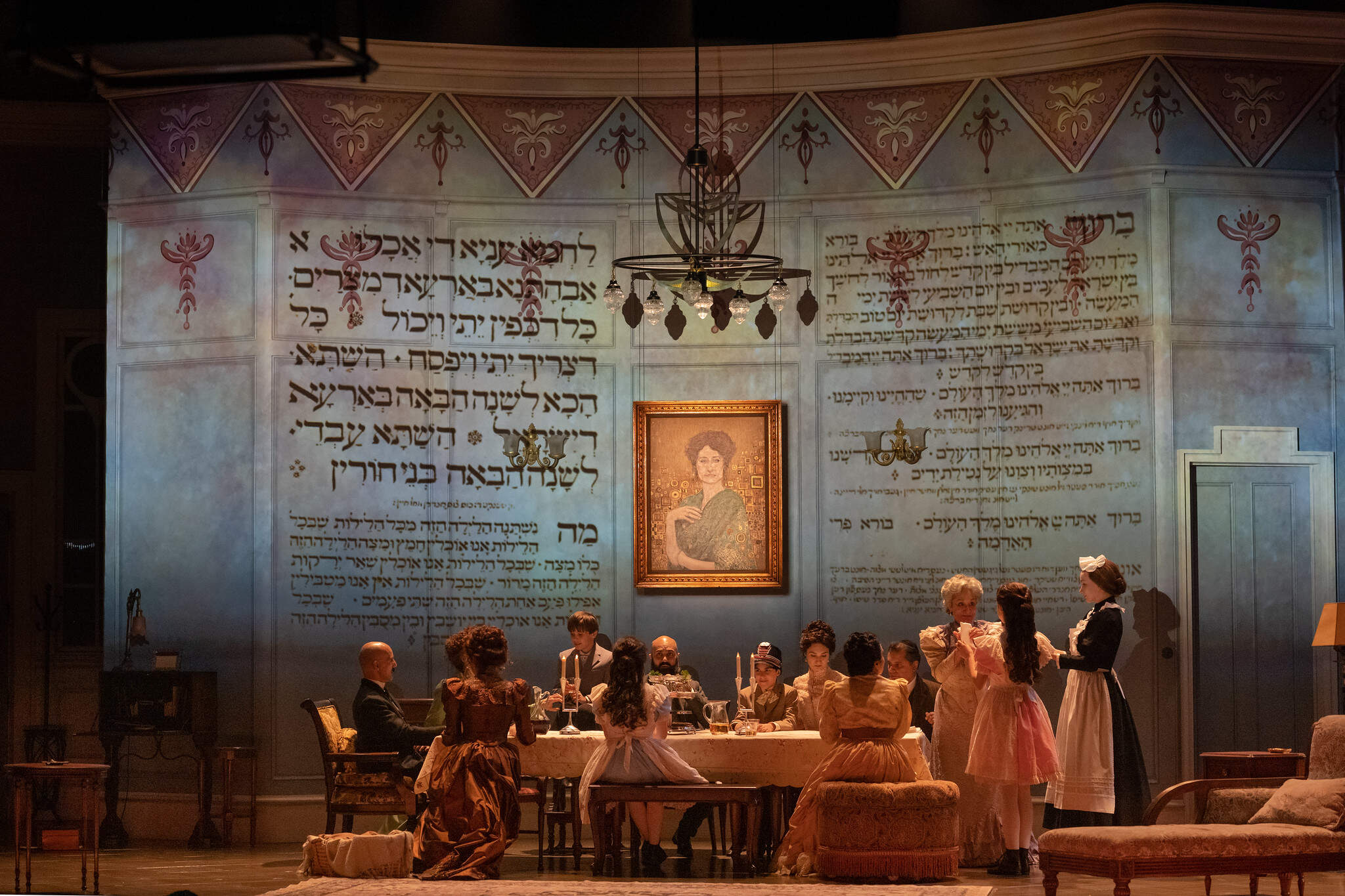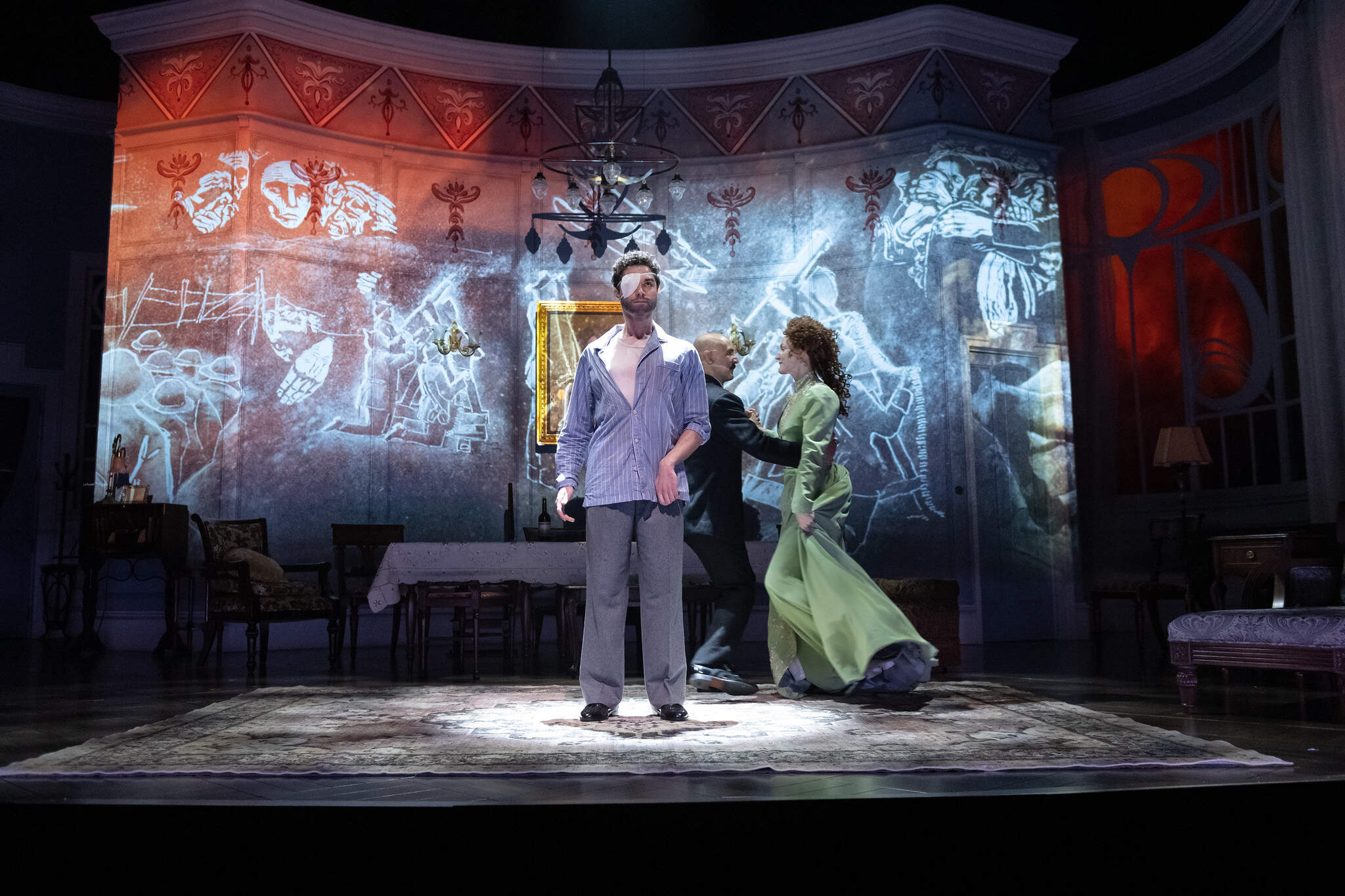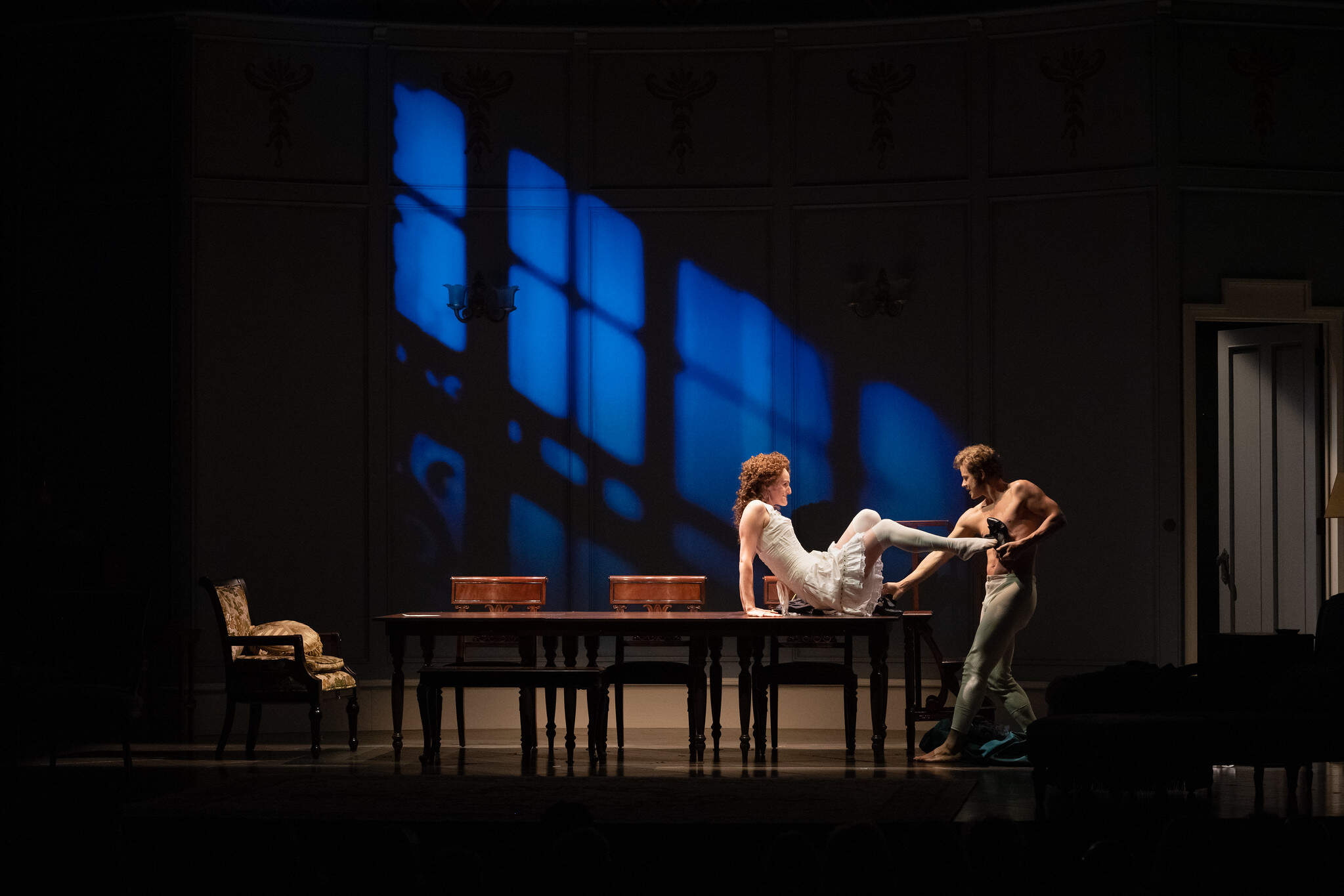Advertisement
REVIEW
Tom Stoppard tells a personal Holocaust story in the Huntington's epic 'Leopoldstadt'

In a well-appointed apartment in Austria in 1899, a jovial Jewish family celebrates Christmas. A decorated tree is up, kids play and adults chatter about their lives, the music of Gustav Mahler, and all is well (at least so it seems) in the Huntington Theatre Company’s production of Tom Stoppard’s “Leopoldstadt” (through Oct. 13 on the mainstage). But through snippets of conversation, the audience learns a little about what’s happening outside the walls of the cozy abode that will increasingly shape the lives of Austrian Jews in the 20th Century.
Some family members, particularly Hermann, an expressive and moving Nael Nacer, aren’t worried. He’s a rich business owner who feels comfortable with his status as an Austrian. Firmly part of the bourgeoisie, his Jewishness, at least in his opinion, is of little consequence. As the narrative progresses through time from 1899 to 1955, family members grow up, get married — some to gentiles — and have children. And everything changes.
The imminent threat of war spurs some to flee, to escape through suicide or to stand their ground. In this production, a portrait following multiple generations of the Merz Jakobovicz family, the characters must choose (or rather be forced to choose) their fate. The audience meets different generations of family members, some of whom cleave to the past and can recount histories and atrocities while others choose to leave things behind and separate themselves from trauma. The strong cast keeps those choices clear in the 2 ½ hour play — Stoppard’s most personal, at least in terms of his own Judaism and losing many family members in the Holocaust, including all four grandparents.

Stoppard’s essay “On Turning Out to Be Jewish” is excerpted in the show’s program. In it he writes of his mother who was corresponding with a researcher trying to piece together the past. She wrote that “there were so many mixed marriages that the matter lost importance. In my family, the ratio was about 50-50. Three nephews and one niece lived in Bohemia, three generations in a modest Catholic environment.”
This theme of lost identity due to circumstance and history is woven throughout the narrative, beautifully underscored by director Carey Perloff, a Stoppard specialist. For example, some family members remember much about the past. When talking about the troubles their community is facing, such as prominent Jewish men being stripped of their duties as businessmen and turned into butlers amid other changes, Eva tells the family that they’re used to things like this. “When Grandma Emilia was little,” she says, “she walked from almost Kiev to Lvov after their village was burned down. It will pass, and something else will take its place.”
The adult Rosa, whom the audience meets in 1955 when speaking to nephews Nathan and Leo — a grown-up and very English Mishka Yarovoy — also held on to what the family has endured. A young Leo cut his hand on a cup in the presence of a mean Nazi soldier. However, aside from that, he remembers very little which offends Nathan. Nathan tells Leo that he’s done nothing wrong; he’s just “an accident of history.”
Advertisement

That seems true of the prolific and much-awarded Stoppard (born Tomáš Sträussler in Czechoslovakia). His first play, “A Walk on the Water” was televised in 1963. He went on to pen the lauded “Rosencrantz and Guildenstern Are Dead,” which went to Broadway in 1967, “Travesties,” and “The Real Thing,” among others. This work, “Leopoldstadt,” named after a traditionally Jewish municipal district in Vienna, was written after he was publicly rebuked for turning his back on his family’s story. The playwright didn’t grow up steeped in Jewish tradition —asked about his ethnicity he once replied “I’m Jew-ish” — and “Leopoldstadt,” in its first fully American production, was the result of taking a fuller look at his own story. (The Tony-winning New York show was based on the British production, which won the Olivier Award.)
The cast and creative team did a wondrous job of curating a beautiful and peaceful home —conceived by Ken MacDonald— teeming with books and love conveyed through the stellar cast. The living room and dining walls act as screens for projection by Yuki Izumihara with lighting by Robert Wierzal that set the time and place. Throughout the play, there are projections of Hebrew emblazoned on the walls and pictures of triumphant soldiers with guns. Burning buildings and swastikas are augmented by sounds and original music by Jane Shaw. Impeccable and era-appropriate hair (think curly bouffants) and lacy, puffy-sleeved, voluminous dresses in silk and velvet, with suits and coats for the male cast members, were created by Alex Jaeger.
In “Leopoldstadt,” which Stoppard has hinted will be his last play, he writes of the monstrosities of the Holocaust — where Nazi researchers looked to America’s strategies to subjugate and terrorize according to Isabel Wilkerson’s “Caste” — through the lens of this family who strives not only to live but to thrive and be proud of who they are. He doesn’t spend an inordinate amount of time outlining the Nazis’ atrocities but offers one scene where a German soldier wreaks havoc on the family in big and small ways. He orders them to leave with a suitcase in which they’re not allowed to bring anything too valuable, and they have to leave quickly. But the soldier also kicks things over and makes an unnecessary mess, knowing they cannot retaliate.
Toward the end of the show — which despite the rough subject matter had some laugh out loud levity — the adult Leo and Nathan talk about what happened to their family and Leo, to comfort Nathan, says “it can’t happen again.”
Leo is naive at best. But it’s this thought that history, pregnant with hate cannot repeat itself that frightens me the most. Just take a look at all the conflicts around the world.

“Leopoldstadt” runs through Oct. 13 at the Huntington Theatre Company mainstage.
